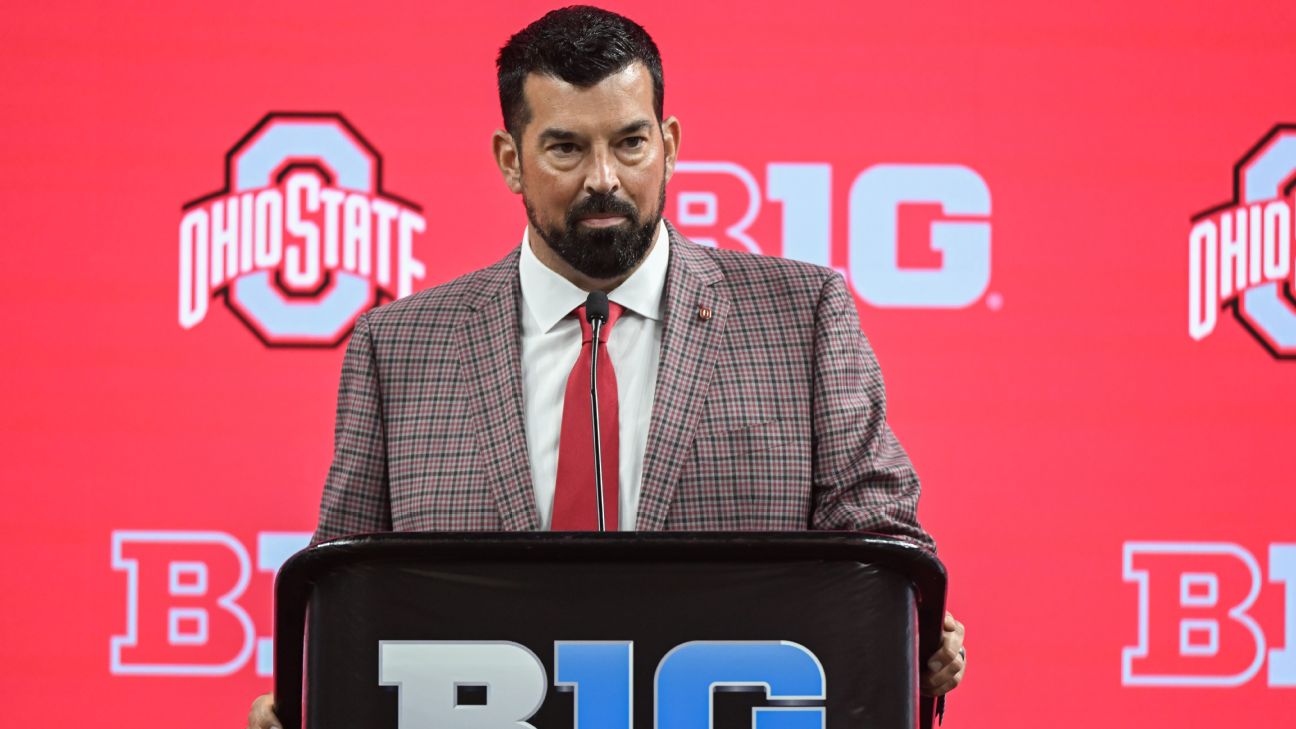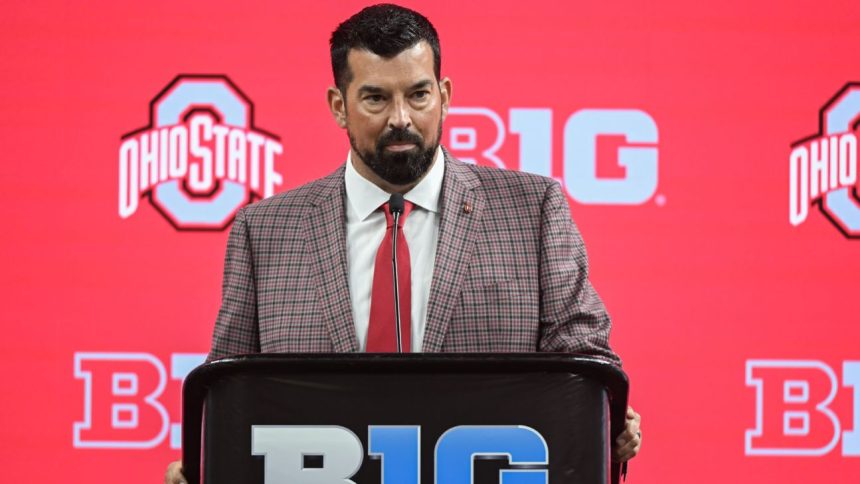
INDIANAPOLIS — One of the biggest changes this season in the 12-team College Football Playoff is the guarantee that the five highest-ranked conference champions will earn the chance to compete for the national title — and coaches have realized it also creates an extremely difficult path for any runner-up teams that reach the CFP.
The four highest-ranked conference champions will earn a first-round bye, but if the loser of the league championship game earns one of the at-large bids on Selection Day, that team will have to win four straight games to win the national title and will play a total of 17 games.
It would be a unique scenario — and an unprecedented run in the sport — but Ohio State coach Ryan Day said he has talked with Big Ten commissioner Tony Petitti about how the CFP format will impact playing in the league title game.
“He’s brought this up before and what that means and should there be some conversation about what that means on that weekend?” Day said Wednesday at Big Ten media days. “I won’t get into all of the conversation that’s been had, but it’s a great question and a great point.”
Speaking at Lucas Oil Stadium, where the Big Ten championship game will be played for the next four years, Day added that “we all know how important it is to win the conference.”
“I think what that’s meant to college football, the tradition of college football and playing in this stadium, the electricity of that weekend and what it means to win the conference, especially having 18 teams now — it just means so much,” Day said. “To take that away would be a challenge. When you look at it practically from a wider lens of the playoff, I can see the argument on both sides. But I’d like to play for the Big Ten championship. You can’t replicate it. It’s one of those things you don’t forget.”
While Notre Dame as an independent can’t earn a first-round bye, it also avoids the potential of having to play a 17th game, which was one of the considerations when former Notre Dame athletic director Jack Swarbrick helped author the original 12-team proposal.
First-year CFP executive director Rich Clark said that the 12-team format will create the access the sport needs and that honoring conference champions with automatic bids is “a great aspect of this.”
“That allows every conference to have that opportunity to put a team into the playoff, and that’s something that we absolutely needed,” Clark said. “It means something when those championship games are played. As teams are going through the season, they know that’s a path that they have.”
Georgia coach Kirby Smart said last week that he “doesn’t want to be the loser” of the SEC championship game and that the third-place team in the league might actually have the most comfortable path — although it’s not the route he’d like to take.
“We have said, as coaches, the SEC runner-up is the one that’s — really in the old system it wasn’t great either, because you could play yourself in or play yourself out,” Smart said. “Now it’s, ‘OK, I gotta go through a gauntlet after this thing; the gauntlet’s not worth the reward.’ I disagree. I am an SEC-enthusiastic person, core through, 25 years. The SEC championship to me — and I mean this with all my heart — is just as valuable as the national championship because they are so hard to come by, and guess what? They just got harder.
“I don’t want to be the loser of that game. The winner is going to be the team that might sit at home and be third and realistically get in by some way, shape or form. They didn’t play that SEC championship game. I worry there’s a situation where somebody goes, ‘You know what? We’re better off just not playing our starters and not winning this game so we don’t have to play in that game but we can still get in the show.’ I hope that doesn’t happen.”
When asked Wednesday if playing in a conference championship game is worth the risk for teams with national title aspirations, Penn State coach James Franklin told ESPN, “That is the argument that everybody is aware of.”
“In a lot of ways, you get penalized for playing in that game,” he said. “But the problem is, these conferences — their TV deal has already been signed. It’s too much money, so they’re not giving it up. That’s also where you talk about the lack of consistency that causes challenges in college football — one conference is playing eight games and another is playing nine games, some teams not being in a conference.
“That’s one of the most important things that we can do is try to level this where everybody is playing under the same criteria. How are you supposed to rank these teams if not everybody’s got the same kind of formula? I think that’s one of the most important things we can do.”










